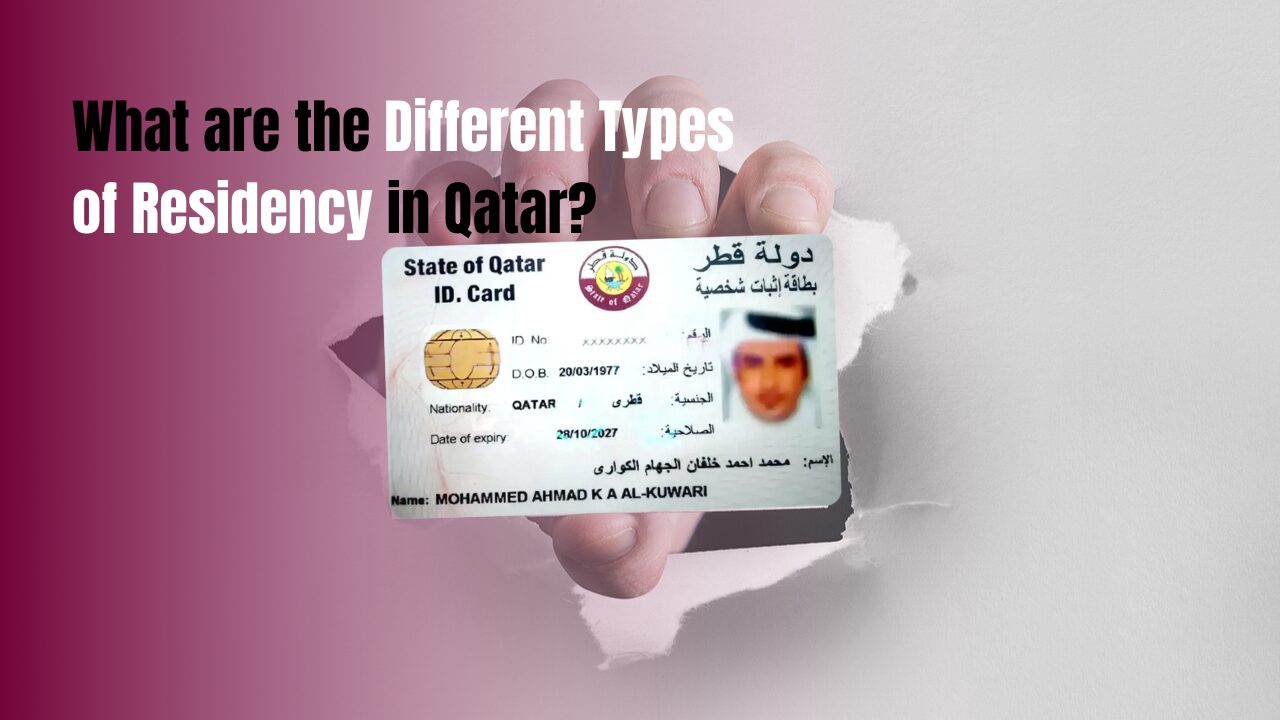What are the Different Types of Residency in Qatar? Qatar, a rapidly growing hub in the Gulf region, attracts thousands of expatriates annually due to its thriving economy and dynamic cultural landscape.
One crucial aspect for expatriates is understanding the types of residence permits available, as each one caters to different professional, educational, or personal needs. Qatar’s government offers three distinct classes of residency permits: Class A, Class B, and Class C. Each type serves a specific purpose and applies to individuals depending on their employment status, purpose of stay, and affiliation in Qatar.
Types of Residence Permits in Qatar
Below is an overview of the three residency types available in Qatar, outlining who qualifies and what each class entails.
| Residency Type | Description |
|---|---|
| Class A Permit | Designed for employed expatriates. |
| Class B Permit | Granted to expatriates employed by local companies or institutions. |
| Class C Permit | Issued to expatriates who are students, volunteers, retirees, or engaged in specific, non-commercial activities. |
Class A Residence Permit
The Class A Residence Permit is the primary residency type for expatriates directly employed by Qatari organizations. This permit is issued to foreign nationals who are full-time employees in sectors like healthcare, engineering, finance, and other core industries.
Applicants of this permit typically undergo medical and security checks, facilitated by their employers as part of the onboarding process. Once granted, this permit allows expatriates to reside legally and work within the specified role, granting additional benefits like family sponsorship.
Benefits and Eligibility of Class A Permit
- Allows expatriates to work in the role they were hired for.
- Employers often sponsor and cover associated costs.
- Enables holders to sponsor family members under family residency.
Class B Residence Permit
The Class B Residence Permit is issued to expatriates hired by Qatari companies, institutions, or government entities. Unlike Class A, this permit is tailored specifically for employees associated with corporate, non-core sectors, or public institutions.
Class B residency requirements typically include employer sponsorship, which manages documentation and legal obligations for the expatriate. As such, this category ensures smoother job placements for professionals involved in consultancy, administrative roles, or educational services.
Benefits and Eligibility of Class B Permit
- Valid for expatriates working in diverse fields within local companies.
- Company-sponsored, with paperwork handled by the employer.
- Provides legal work authorization and residence in Qatar.
Class C Residence Permit
The Class C Residence Permit serves a unique purpose, as it caters to expatriates who are not directly involved in the commercial or employment sectors. Individuals eligible for this permit include missionaries, students, volunteers, researchers, or retirees.
Class C residents must still fulfill entry and stay requirements, such as maintaining a visa and complying with local regulations. This permit also enables retired persons or those visiting Qatar for humanitarian or research-based work to reside in the country under authorized sponsorship.
Benefits and Eligibility of Class C Permit
- Suitable for individuals not directly employed but involved in specific, approved activities.
- Often requires sponsorship or association with educational or humanitarian organizations.
- Permits stay for study, research, or voluntary work.
Conclusion
Choosing the right residency type is essential for a smooth and compliant stay in Qatar. The country’s structured permit system ensures that expatriates have the proper authorization, security, and support they need to integrate into the community.
Understanding the differences between Class A, B, and C residence permits can help expatriates and their families find the right fit for their personal or professional lives in Qatar.
